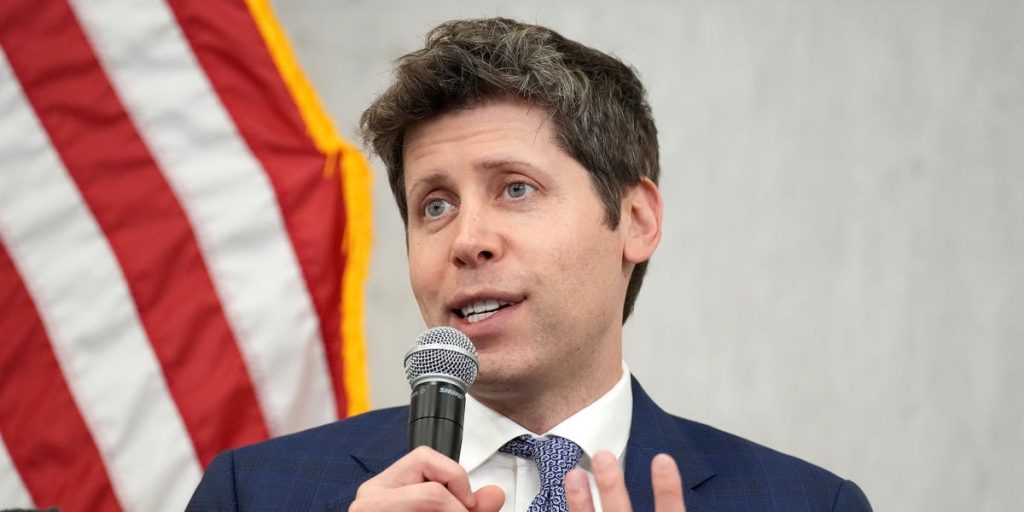Critics aren’t convinced by OpenAI’s latest restructuring plan.
OpenAI said last week it will hand its nonprofit over $100 billion in stock, or 20% of the company’s latest $500 billion valuation. It’s part of the artificial intelligence giant’s plan to restructure itself — it is technically a nonprofit, not a startup — so it can raise billions more from investors.
Dozens of civil society groups, which want to ensure the benefits of AI are spread in the public interest, say they’re pressuring regulators to protect OpenAI’s nonprofit mission. They argue the nonprofit isn’t fully independent from OpenAI and that $100 billion might even be a lowball given the company’s prior commitments.
These critics’ voices matter because they’re driving the pressure on California and Delaware regulators to keep investigating OpenAI over its restructuring. OpenAI’s ability to do so and thus secure billions in new funding hinges in part on the outcome of this probe.
As OpenAI inches toward its new structure, it’s also racing against the clock. Its complex structure has already prevented it from reaching many potential investors, and the funding it secured is conditioned on near-term structural changes, it said in a letter this May.
OpenAI stood behind its nonprofit’s independence in comments to Business Insider. It also said that its existing nonprofit will remain in control of its for-profit entity as part of any changes.
Delaware Attorney General Kathy Jennings is looking into the $100 billion giveaway as part of her investigation into OpenAI.
“We look forward to examining the details of this agreement as part of our continued review of OpenAI’s plans, in keeping with our ongoing responsibility to safeguard the interests of its public beneficiaries,” she said in a statement to Business Insider.
Related stories
California’s attorney general declined to comment as OpenAI is under an active investigation.
OpenAI’s nonprofit isn’t independent, advocacy groups say
Advocacy groups have called for regulators to keep OpenAI true to its charitable mission, with over 50 joining a coalition called EyesOnOpenAI.
They say that OpenAI’s nonprofit isn’t truly independent from the company, especially since the board members who briefly ousted CEO Sam Altman in November 2023 were replaced. The nonprofit’s $100 billion stake doesn’t fix that fundamental problem, in their view.
“This setup risks perpetuating the problematic dynamics we have seen, essentially putting the foxes in charge of the henhouse,” said Judith Bell, chief impact officer of the San Francisco Foundation.
Orson Aguilar, CEO of LatinoProsperity, a lead member of the EyesOnOpenAI coalition, agreed.
“The major question is whether the nonprofit is truly independent, and OpenAI has not announced any new mechanism or guardrails to ensure the public of that,” he said.
OpenAI’s nonprofit board has operated as a “rubber stamp” since November 2023, progressive advocacy group Public Citizen said in a Friday letter, flagging the presence of Altman and corporate figures like BlackRock senior managing director Adebayo Ogunlesi for appearing to further “a for-profit mission.”
To resolve this, EyesOnOpenAI called on regulators in June to transfer most of OpenAI’s charitable assets to a new, independent nonprofit.
OpenAI told Business Insider that its nonprofit board is made up of eight independent directors alongside Altman and fully focuses on the mission of ensuring artificial general intelligence (AGI) benefits all of humanity.
Critics say $100 billion is not enough for OpenAI
A $100 billion stake would turn OpenAI into one of the largest charities in the world. Some say it may not be enough.
OpenAI’s nonprofit should be entitled to almost all of OpenAI’s earnings, not just 20% of them, says Tyler Johnston, executive director of The Midas Project, another group keeping the pressure up on regulators.
“If we’re successful in our mission, the vast majority of the money they ever earn will go to the nonprofit,” he told Business Insider.
OpenAI said in 2019 that “any excess returns” — past a capped return for investors — would go to its nonprofit to ensure the benefits of AGI are widely spread. In May, OpenAI scrapped its capped profit model due to the rise of many other “great AGI companies.”
“This is not the time to step off the gas,” Johnston said.
OpenAI subpoenaed The Midas Project and Johnston earlier this month, accusing the watchdog of being funded by billionaire Elon Musk, who challenged OpenAI’s restructuring in a lawsuit. Johnston denies the claims and says it’s part of OpenAI’s campaign to silence critics. OpenAI told The San Francisco Standard it’s seeking transparency.


